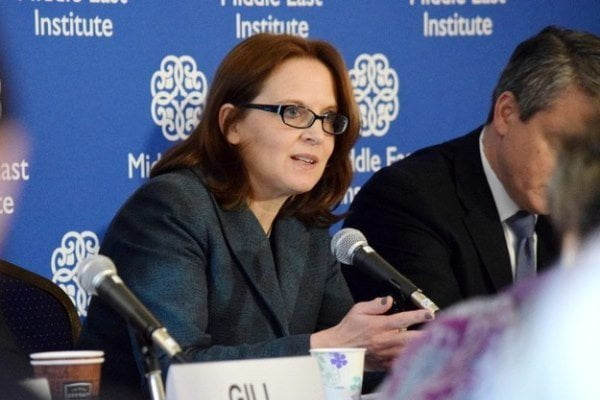RASC News Agency: Lisa Curtis, former senior official at the U.S. National Security Council, has delivered a scathing critique of the U.S.-Taliban negotiations, asserting that the 2020 Doha Agreement was never a genuine peace accord, but rather a strategic withdrawal deal crafted to facilitate the United States’ military exit from Afghanistan. According to Curtis, the agreement far from paving the way for lasting peace was structurally weak and disproportionately favorable to the Taliban, offering them substantial concessions without securing binding commitments for peace, inclusivity, or human rights.
Speaking at the Hudson Institute, Curtis emphasized that the Doha accord was deeply flawed both in conception and execution. “The agreement was not built to promote stability. It was constructed to expedite U.S. disengagement,” she said. “It empowered a militant group while excluding the broader Afghanistani political spectrum from any meaningful participation.” Curtis underscored the urgent need for renewed political dialogue in Afghanistan, stressing that future diplomatic efforts must involve all relevant Afghanistani stakeholders. She called on U.S. policymakers to move beyond narrow, security-driven frameworks and reinvest in inclusive, peaceful political processes that reflect the country’s ethnic and social diversity.
In a strongly worded appeal, Curtis advocated for intensified international support to opposition forces resisting Taliban rule. “The Taliban did not assume power through democratic consensus. They took control by brute force and repression,” she stated. “They are not the legitimate representatives of the Afghanistani people. Figures such as Ahmad Massoud and other civic leaders, who embody the aspirations of a pluralistic society, must be given space to operate politically and to voice alternative visions for the country.” She further argued that resistance movements deserve not only international recognition but tangible backing. “These fronts represent a different and more hopeful future for Afghanistan one rooted in justice, dignity, and democratic values. Abandoning them would be a strategic and moral failure,” Curtis warned. She urged Washington and members of the U.S. Congress to maintain active channels with these groups and to provide them with political, diplomatic, and humanitarian support.
Curtis also cautioned against any normalization of Taliban governance. “There should be no illusions about the Taliban’s true character. They remain an extremist faction that routinely violates human rights and shirks international norms,” she said. “They must not be legitimized as a conventional political actor by the global community.” Concluding her remarks, Curtis stressed the necessity of sustained international engagement to prevent Afghanistan from once again becoming a breeding ground for terrorism. “The United States and its allies have a responsibility not only to prevent the resurgence of extremist networks but also to stand in solidarity with the Afghanistani people. Walking away now would be a betrayal of their sacrifices and aspirations,” she said.






